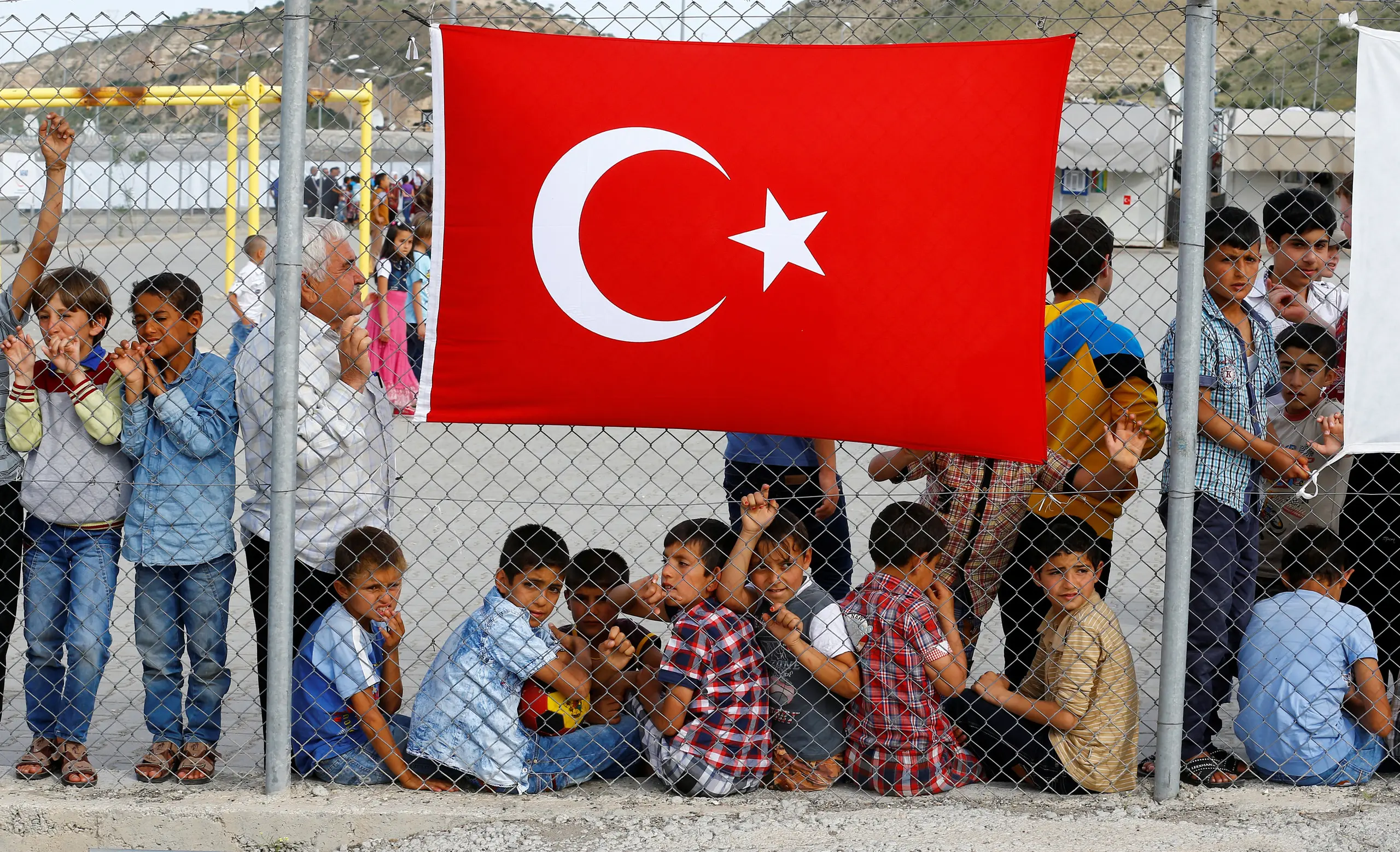The Republic of Turkey is a party to the 1951 Refugee Convention and 1967 Protocol, maintaining the geographical limitation to the 1951 Convention, thus retaining resettlement to a third country as the most preferred durable solution for refugees arrived due to the events occurred outside of Europe.
Citizens of countries other than Europe are not considered refugees. Despite this limitation, it provides non-European refugees with protection and temporary asylum, pending UNHCR’s search for durable solutions elsewhere. However, resettlement is not a right and does not apply to everyone granted refugee status and countries are not obliged to accept refugees for resettlement.
Refugees in Turkey, despite of undertaking legislative and institutional reforms since 2013, remain without job permits, travel within the country, or ownership.
In spite of Turkish officials’ claims that the refugee situation has improved, observations do not support these claims. Government claims that largely recognizes some basic rights, such as the right of access to education for children as well as free medical care, and is enjoyed by refugees. The Turkish government does not provide exact figures, but claims that one million of the approximately 4 million refugees in the country enjoy employment benefits. Many refugees also constantly complain about the lack of health care and insurance.
Refugees are allowed to live only in the city they have chosen from the migration management and must obtain a permit document to travel another city. Police check has often resulted in people being detained for not having a travel permit, and the Turkish government deports the individual for violating the law. It is generally a very difficult task to find a job in these small towns, and renting a house can be incredibly complicated.
But, since the Turkish government has taken over the process of asylum, the situation has worsened. The Turkish directorate general of migration management uses certain criteria to reject many asylum cases that have previously been accepted by the UNHCR.
Refugees are not allowed to participate in political or social activities in the country. Activities against the government of the country of origin are also prohibited. Government generally tolerates the activities. However, there is no guarantee. Many political activists from various countries, such as Iran, have been deported or are about to be deported for their activities.
Every year, hundreds of asylum seekers and immigrants are deporting, especially to Iran. While under Turkish and international law, when asylum seekers enter a country and declare their desire to become refugees, no government has the right to deport them; Unless their requests are denied after going through the legal process and reviewing their cases. Human rights activists have also called for the ban on the return of asylum seekers to be implemented in Turkey’s Foreigners and International Protection Law No. 6458 and to deal with violators.
I can mention the example of Safiullah on an illegal deportation last year who was picked up in Ankara then deported by Turkish authorities into the Syrian opposition enclave at the Khirbet al-Joz border crossing in western Idlib. “We told the Turkish authorities that we were Afghans, yet they deported us to Syria.”
Although registering an asylum application and obtaining a residence card is done quickly and within a few weeks, the process of processing an asylum application, ie interviewing and receiving the result, can take years. However, many say that the process of issuing temporary residence permits in each province of Turkey is different and in some this time can take up to more than 12 months. The majority of cases have been pursued for 10 years or more. (This includes registration, interview, decision, and possible resettlement.) During all these years, refugees are generally left without any financial or accommodation assistance.
It should mention the inhuman instrumentalization of refugees when, in the days preceding the end of February 2020, the Turkish government announced that it had opened its borders to refugees leaving for Europe, but it did not say that European Union borders were closed. Thousands of asylum seekers were devastated by the decision. In the first months of the Corona pandemic between the two countries, they were displaced for a weeks and faced border violence. The Turkish government intended to force the European Union to accept its political and economic bargaining at the time.
After Turkey entered the currency and economic crisis in 2018, not only are we witnessing organized attacks on refugees in various cities, but even some opposition parties are taking tougher positions.
In the past weeks, head of Migration Management of the Ministry of Interior, said that Turkey has created safe zones in northern Syria with its own means, and almost 500 thousand Syrians return to these safe zones voluntarily. Safe zones is the northern Syria who opposite to Turkish officials state, after invaded by Turkey has effectively displaced thousands, specifically Kurdish people.
Turkey hosts 3.7 million Syrians with temporary protection status. In addition to this, there are around 300 thousand conditional refugees from different countries of the world in Turkey.
The Republican People’s Party of Turkey (CHP), the largest opposition party in the parliament, has taken a tougher line on refugees situation. The party’s leader, Kemal Kılıçdaroğlu, announced a few months ago that he wanted to repatriate all refugees if he gained political power. In the popular political discourse in Turkey, when refugees are mentioned, they mostly mean Syrian refugees.








